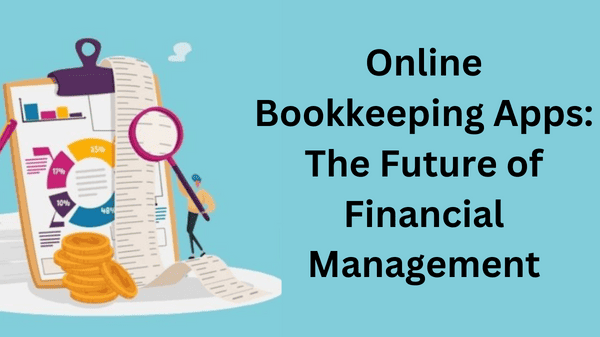Almost as soon as you realize you have a great idea for an app, the question comes up: should you build it for Android, iOS, or both?
There is no one definitive answer to this question. Android and iOS each have their advantages and disadvantages. The operating system you choose should depend on many factors, including your audience, your business model, how soon you want to launch the app, and what resources you have to build it.
If your objective is to reach as large an audience as possible, Android controls nearly 53% of the smartphone operating system market in the US, compared to iOS’s 44% market share.
But there’s more to it than just market share. When you consider which platform is best for your purposes, or whether your app should be cross-platform, you need to consider all of the pros and cons. Here’s what you need to know about Android and iOS before you take the plunge with either (or both).
Evaluating Your Platform Options
Android: Pros & Cons
Android has come a long way since the 2008 launch of the T-Mobile G1, the original Android phone. Today, it’s the world’s dominant mobile operating system — but does that mean it’s right for your app? Here are the factors to consider.
Pros:
- Android is open source, so it has a larger user base — in fact, it has 85% market share of mobile devices globally.
- It has easy-to-use crowd-created plugins and frameworks.
- Because Android is owned by Google, it’s easy to set up a Cost-Per-Impressions (CPI) campaign for your app on Google, Google Play, and YouTube.
- When it comes to app configuration, Android has more flexible and comprehensive app permissions.
- Because of Android fragmentation, there is a wider range of hardware available to run the operating system. This includes media-streaming devices, wearables, and TVs. The possibilities will only become greater as developers explore virtual reality, too.
Cons:
- Developing an Android app usually costs about 20% more than developing an iOS app.
- Android phones are less powerful and have less physical memory, which can make apps slow and even unstable.
- Fragmentation makes app development more difficult. Screen sizes, dots per inch (dpi), hardware capabilities and more all differ from manufacturer to manufacturer.
- You need to test your app on many different devices to make sure there aren’t dependency issues between different versions.
The bottom line: Consider whether you have the time and resources to invest in Android app development. If your app’s market is Asia, Africa, or South America, it’s probably best to go with Android, as it dominates iOS in these regions.
iOS: Pros & Cons
It’s hard to believe iOS was revealed just nine years ago, during the initial iPhone launch in 2007. Today it’s on its tenth version — advertised as the most advanced mobile experience ever. Should your app be an iOS app? Here are the pros and cons.
Pros:
- Here’s the big one: iOS users usually have higher incomes than Android users, and iOS apps generate up to four times as much revenue per user than do Android apps.
- Because of their revenue-generating potential, iOS apps usually have a higher return on investment compared to Android apps.
- Developing an app for only two devices — iPhone and iPad — makes UI and UX design a snap.
Cons:
- iOS users expect high-quality design and usability — your app needs to be polished and look great. (This might be considered a pro, too).
- Apple has strict development guidelines, which means it takes more time for the app to be reviewed and appear in the app store. It also means Apple may require you to change something about your app. Worst case scenario: They could reject the app entirely.
- When it comes to app configuration, iOS’ Xcode has a long list of build settings likely to give any developer a headache. And Xcode only runs on Macs, meaning you need powerful Mac and Apple mobile devices to develop for iOS.
The bottom line: If your business model relies on in-app purchases, iOS may be your preferred choice since users tend to spend more in that arena. However, if you want to get your app to market as quickly as possible, you may want to think a bit more about choosing to go with iOS.
Both: Pros & Cons
As though deciding between the two operating systems wasn’t hard enough, there’s a third option: both. For some, going cross-platform is a no-brainer, but for others it takes careful consideration. Let’s find out if this is the right route for your app.
Pros:
- There is one significant pro: When your app is on Android and iOS, there is no market you can’t reach. Whether users live in urban America or rural Thailand, they can download and use your app on their device.
Cons:
- The main con is simply that it’s a lot more work to develop two native apps instead of one — and that’s essentially what you’re doing. Developing for both iOS and Android means installing two integrated development environments (IDEs), and learning two programming languages and two software development kits (SDKs). That’s a lot.
- Programming language on iOS and Android are completely different — it’s not as simple as taking the app built for one platform and fine-tuning it a bit for the other.
- All this extra work requires extra money. You need to make sure you have the resources to develop two apps. True, there are hybrid platforms like Phonegap and Xamarin, but these options are notorious for being more expensive than advertized, and providing poor user experience.
When developers decide they are going to develop an app for both operating systems, the next question is: should we build our app for the iOS or Android platform first?
Again, it will depend on who your audience is and what your goals are. Generally, it’s best to go with the operating system your audience is most likely to use. Do your homework before building an app to make sure you understand your audience and know where to find them.
Once you’ve done that, make the decision that’s right for you and enjoy the creative, frustrating, inspiring, and ultimately rewarding experience of building your app. Good luck!
Hunter Jensen is the Founder and CEO of Barefoot Solutions, an innovative digital agency headquartered in San Diego, CA. Barefoot Solutions specializes in web and mobile design and development, including web, iOS, Android, IoT, AppleTV, Apple Watch, and more. Having worked in technology for more than 19 years, Hunter's experience covers the entire lifecycle of product design and development, as well as all other facets of running a digital agency, including business development and fundraising. Hunter's comprehensive technical knowledge combined with his natural creativity enable him to meet his client's needs with industry-leading digital solutions.

























































































































































































